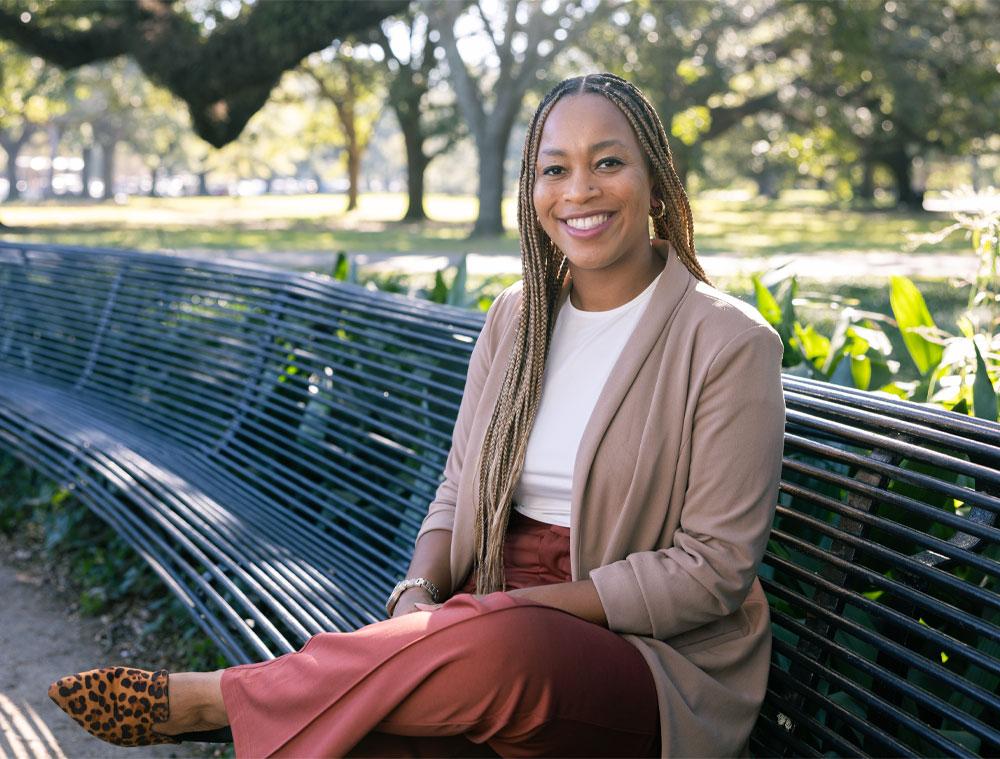Tulane graduate student aims to tackle school-to-prison pipeline
It’s called the school-to-prison pipeline, and it refers to a national trend where students, especially those from marginalized communities, are funneled out of public schools and into the juvenile and criminal justice systems due to harsh disciplinary practices. Many students receive such discipline after showing symptoms of trauma or mental health disorders for which they have received little to no intervention.
The subject is one that Alanna Manigault, who is working on her PhD in school psychology at Tulane University, has long been interested in, having seen the trend up close in both New Orleans and Pittsburgh. Now, the Ohio native has a chance to do something about it.
Last month, Manigault was named a Health Policy Research Scholar by the Robert Wood Johnson Foundation. The national leadership development program based at Johns Hopkins University prepares PhD students from a variety of disciplines to translate their research into evidence-based policies.
Manigault will receive $30,000 a year over the next four years to support her graduate training. Her research focuses on addressing the disproportionate impact of the school-to-prison pipeline on marginalized youth such as children of color or those with disabilities. She seeks to develop restorative practices, behavior interventions and policies that target this population, ultimately building what she calls a “Culture of Health” by promoting access to effective mental health care in place of criminalization.
“As a scholar, I will take courses and seminars, receive specialized mentorship and coaching, attend annual summits with other scholars and engage in applied learning and skill building,” she said. “I’ll have the opportunity to analyze policies, write policy memos and communicate with policymakers and staffers during legislative visits.”
Manigault became interested in educational inequities among marginalized youth as an undergraduate psychology student at Hampton University, a historically Black college in Virginia. During an outreach experience at a local high school, she observed stark racial disparities in academic opportunities among students. Manigault became aware of how academic performance and mental health needs go hand in hand, and can have a lifelong impact on students when left unaddressed. After college, she worked with adjudicated youth as part of a study on the effectiveness of court-ordered mental health treatment.
“I worked with two programs that treated youth who were on probation, either for arson or sexual offenses,” she said. “They were given the chance to receive outpatient services instead of residential placement or jail. I learned a great deal about how impactful treatment could be. That’s when I knew this is what I wanted to do.”
At Tulane, Manigault works closely with Courtney Baker, an associate professor of psychology and director of Project DIRECT, which combines research and practice to ensure that the most effective prevention and intervention programs are provided to vulnerable children, youth and families. This includes children who live in poverty, children of racial and ethnic minorities, and children who have experienced trauma.
“Courtney’s work on trauma-informed care aligns with my interests in every way,” she said. “Particularly, I am interested in studying trauma-informed care and integrated mental health services in schools, school discipline policies and culturally responsive behavior interventions.”
In addition to her academic studies, Manigault brings a wealth of research experience to the table. At Tulane, she is a research assistant on a study led by Baker aimed at recognizing, responding and helping prevent acts of violence in schools. She has also served in various research roles at the University of Pittsburgh Medical Center’s Western Psychiatric Hospital and the University of North Carolina Gillings School of Global Public Health. During a stint as a classroom assistant in Pittsburgh, she provided behavior support at an alternative school for students who had been pushed out of the public school system due to behavior challenges. The ultimate goal was to prepare students to re-enroll in their home school districts.
“I’ve learned so much about working with kids on the ground, especially vulnerable kids,” Manigault said. “But without policy change, there is only so much we can do to address systems-level inequity.”

